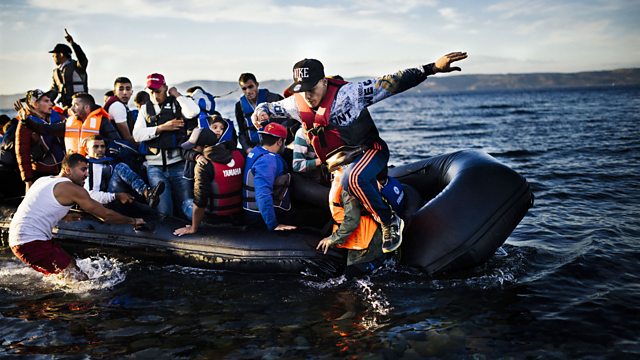Reporting the refugee crisis, Accessing news online, Achieving 'balanced' EU coverage.
The challenges of reporting on the migrant crisis, a survey on how news is accessed online, and are broadcasters restricted by 'balance' in EU coverage? Producer: Katy Takatsuki.
The International News Safety Institute is launching a survey into the psychological impact on journalists covering the migrant crisis, following anecdotal evidence that some journalists are finding it is taking a high emotional toll on them. INSI Director Hannah Storm discusses the challenges of reporting the crisis, and Steve Hewlett is also joined by Channel 4 News International Editor Lindsey Hilsum, who has spent decades reporting around the world on conflicts and who, more recently,has been reporting first-hand on the refugee crisis.
A survey by the Reuters Institute for the Study of Journalism has revealed that more than half of online news consumers are turning to social networking sites such as Facebook, YouTube and Twitter ahead of traditional media groups. The trend is aided by the acceleration of smartphone use, as 53 percent of those surveyed reported using their handheld device to access news content. Steve Hewlett talks to lead author Nic Newman about Facebook's growing influence, and what it means for traditional publishers.
There have been calls for broadcasters to do more to fact check claims made in EU referendum coverage. Writing in the Guardian, columnist Peter Preston thinks the 大象传媒 in particular is being restricted by fairness and balance rules, leaving interviewers unable to robustly refute claims politicians make. But what can broadcasters do to ensure every fact is correct, in a situation where one sides 'fact' may be the other sides 'lie'? Steve Hewlett discusses with Peter Preston, and Stewart Purvis, former editor in Chief at ITN, and Jamie Angus, editor of the Today programme.
Producer: Katy Takatsuki.
Last on
Broadcast
- Wed 15 Jun 2016 16:30大象传媒 Radio 4
Podcast
-
![]()
The Media Show
This is the programme about a revolution in media.


